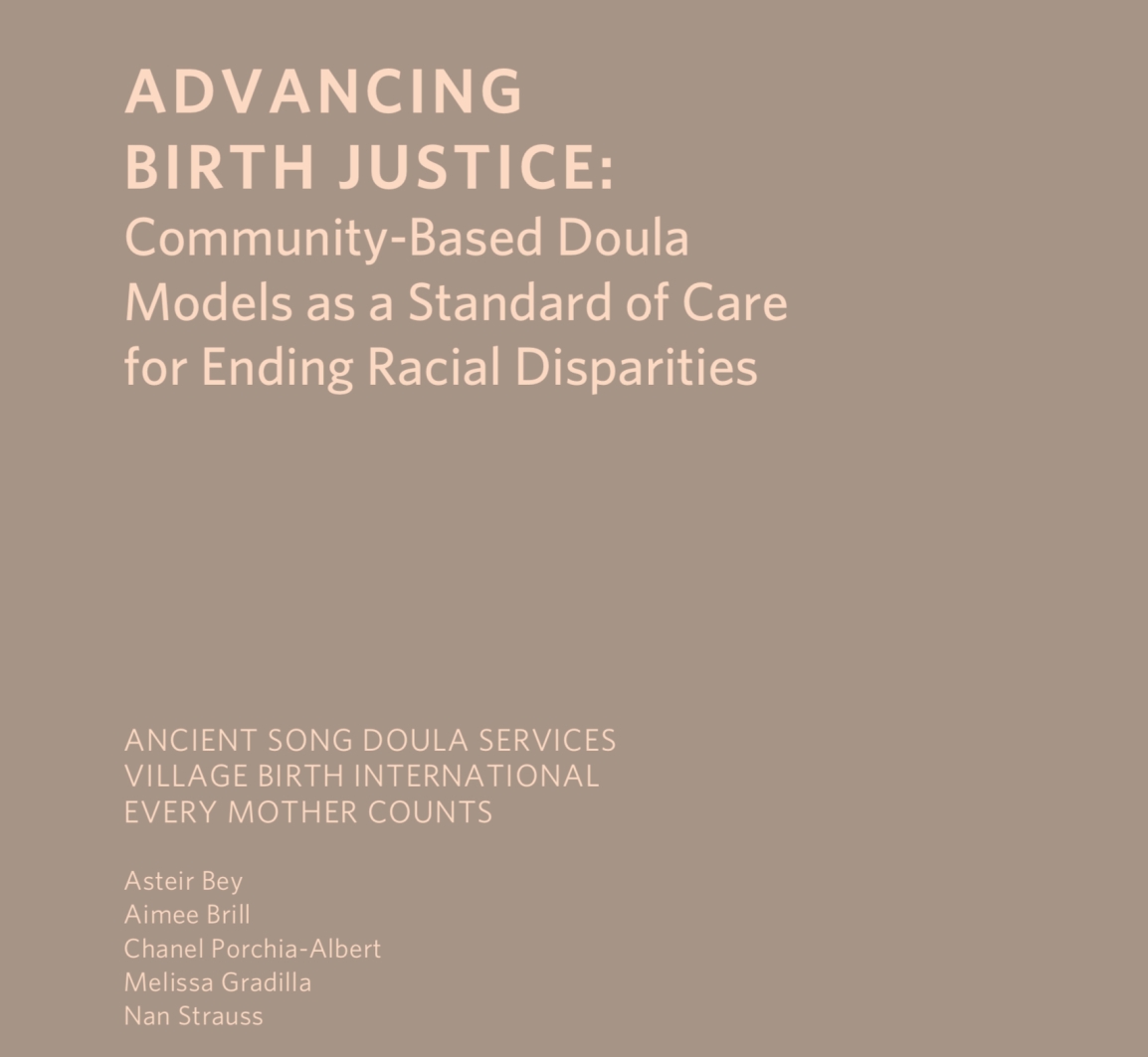
Village Birth International and Ancient Song Doula Services, in collaboration with Every Mother Counts, are excited to share:
ADVANCING BIRTH JUSTICE: Community–Based Doula Models as a Standard of Care for Ending Racial Disparities, a white paper and resource created to uplift community-based doula care as a solution to ending maternal health disparities. Support and share widely to ensure that families and community doulas are receiving equitable care and that Medicaid reimbursement rates are sufficient and just for doulas to earn a livable wage.
Community–Based Doula Models Are Uniquely Suited to Address Disparities
“As New York and other states prepare to design and implement Medicaid doula reimbursement programs, approaches must move towards successful implementation by collaborating with and engaging community-based partners. Communities and state agencies must work to build sustainable programs that are equitable for doulas and that have the potential for long-lasting health improvements for women and infants.
Community-supported birth has always been a fundamental characteristic of healthy pregnancy, childbirth, and parenting outcomes for all people across circumstance, time, or geographic location. Much of the literature on maternal health and reproductive disparities highlights social determinants of health as the drivers of inequity. While poverty and inadequate resources certainly affect quality of life, levels of chronic stress, and health, a singular focus excludes the burden of racism, gender oppression, obstetric violence, and institutional policies that negatively affect pregnant people of color.
Birth workers of color are responding to the maternal health crisis with doula care that is reflective of the needs of families in their local communities. Communal responses to disparities reveal the activation of pregnant people raising their families in environments where resources, dignity, quality care, support and humane treatment are scarce. Solutions for mortality and morbidity in birth actually reside in the resilience of people facing inequity every day.
Racism and implicit bias continue to drive health inequity in the United States. Community-based doula care reflects an organized, collective framework where African American, African immigrant/refugee, Latinx, Indigenous or historically underserved individuals formalize and implement programs with the specific aim of serving their own communities. Fundamental values of support are rooted in individual wisdom and self-determination. These programs are culturally infused, generationally informed, and responsive to years of ongoing oppression resulting in trauma informed actions that pull families together in crisis.”
“Medicaid coverage of community-based doula support is increasingly recognized as a promising model to improve maternal and infant health outcomes, improve the experience of and satisfaction with care, and improve health equity, while reducing or maintaining current levels of health spending.
New York State is poised to lead growing efforts to expand coverage of community-based doula support with the Medicaid pilot, but to do so effectively and successfully, will require innovative approaches that build on and move beyond the early efforts in Oregon and Minnesota. In order to fully realize the promise of this model of support and care, attention must be paid to the details of the service model, the composition of the service provider workforce, and the circumstances under which the work is being performed.
Doulas trained through and working with community-based initiatives are the best prepared, suited, and supported to provide the specialized support required to meet the needs of clients facing complex social, economic and environmental issues. Organizations rooted in their communities and connected with other service providers are best placed to make referrals and link clients to appropriate, nearby, specialized support services and programs.
Recognizing, engaging, and learning from leadership within communities of color is essential and community leaders should participate in program design. Accountability is an essential function of government, and processes should be established to ensure input and participation from relevant stakeholder groups, including those representing the most affected communities as well as doulas already serving those communities.”
Click here to read the full white paper: http://bit.ly/AdvBirth
